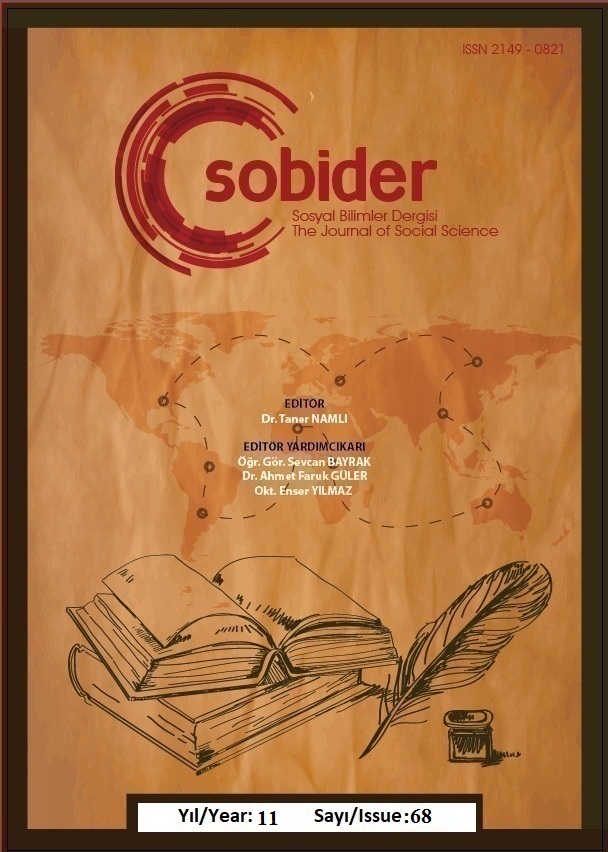Author :
Abstract
Araştırmada ilkokullarda görevli İngilizce ve Din Kültürü Ahlak Bilgisi alan öğretmenlerinin ölçme ve değerlendirme öz yeterlik algı düzeylerinin belirlenmesine çalışılmıştır. Bu çerçevede ilkokullarda görevli İngilizce ve Din Kültürü Ahlak Bilgisi alan öğretmenlerinin ölçme ve değerlendirme öz yeterlik algılarının cinsiyet, branş, mezuniyet ve mesleki kıdemlerine bağlı olarak farklılaşıp farklılaşmadığı belirlenmeye çalışılmıştır. Araştırma İstanbul ili Beylikdüzü ilçesindeki ilkokullarda görevli 39 İngilizce ve 19 Din Kültürü ve Ahlak Bilgisi branş öğretmenleri ile yürütülmüştür. Araştırma verileri ölçme ve değerlendirme öz yeterlik algı ölçeği ile toplanmıştır. Ayrıca katılımcıların demografik verilerini elde etmek için 4 soru yöneltilmiştir. Toplanan verilerin analizinde bağımsız grup “t”testi, tek yönlü varyans analizi (ANOVA) tercih edilmiştir. Farklılıklarda anlamlılık düzeyi olarak, 05 alınmıştır. Araştırma sonucunda; ilkokullarda görevli branş öğretmenlerinin cinsiyet ve mesleki kıdem değişkenine bağlı olarak yeterlik düzeyleri anlamlı düzeyde farklılaşmamakta iken, branş ve mezuniyet değişkenine göre anlamlı düzeyde farklılık olduğu sonucuna ulaşılmıştır.
Keywords
Abstract
In the study, it was tried to determine the measurement and evaluation self-efficacy perception levels of teachers working in primary schools in English and Religious Culture and Moral Knowledge. In this context, it has been tried to determine whether the measurement and evaluation self-efficacy perceptions of teachers working in primary schools in English and Religious Culture and Moral Knowledge differ depending on gender, branch, graduation and professional seniority. The research was carried out with branch teachers working in primary schools in Beylikdüzü, Istanbul. In the study, the sample was not determined, it was tried to reach all the branch teachers working in the primary schools, which are accepted as the research universe. In this context, the research was carried out with 58 teachers in total by reaching all 39 English and 19 Religious Culture and Moral Knowledge teachers. Research data were collected with the measurement and evaluation self-efficacy perception scale. In addition, 4 questions were asked to obtain the demographic data of the participants. Frequency, percentage, arithmetic mean, standard deviation, independent group "t" test, one-way analysis of variance (ANOVA) were preferred in the analysis of the collected data. The significance level for the differences was taken as .05. As a result of the research; While the proficiency levels of branch teachers working in primary schools do not differ significantly depending on the gender and professional seniority variable, it has been concluded that there is a significant difference according to the branches and graduation degrees of the teachers.





